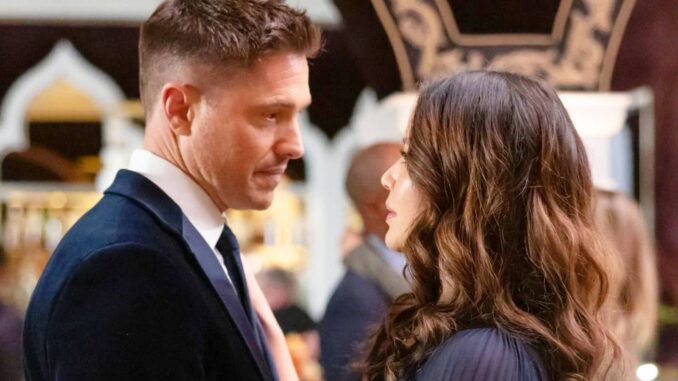
The Dying Ember: Why Network Romance Shows No Longer Captivate
The glow of a shared screen, the crackle of anticipation, the collective sigh as two souls finally intertwined – these were the hallmarks of the network romance show era. From the passionate declarations of Felicity to the will-they-won't-they tension of Friends, these shows once held a powerful grip on the American audience, shaping our romantic ideals and dictating water-cooler conversations. But somewhere along the way, the fire dimmed. Romance shows on network TV, once a reliable source of captivating storytelling, have lost their allure, failing to resonate with modern viewers in the same way. This decline isn't due to a lack of interest in love, but rather a confluence of factors, including changing viewing habits, the rise of niche streaming services, and a formulaic approach that has become stale and predictable.
One of the most significant contributors to the decline is the fragmentation of the television landscape. The once-dominant networks now compete with a plethora of streaming services, each offering a vast library of content catering to specific tastes. While network romance shows often aim for broad appeal, streaming platforms can afford to delve into more niche and daring narratives. Shows like Netflix's Bridgerton offer escapist fantasy with historical intrigue and diverse representation, a combination rarely seen on traditional network television. Hulu's Normal People explores a raw and emotionally complex relationship with an honesty and intimacy that challenges the sanitized portrayals often found on network TV. The sheer volume of choices available means viewers are less likely to settle for the predictable fare offered by networks, instead seeking out shows that speak directly to their individual desires and interests.
Furthermore, the changing landscape of viewing habits has eroded the power of weekly episodic releases. The anticipation of waiting for the next installment, once a cornerstone of network television's success, has been replaced by the immediate gratification of binge-watching. Streaming services allow viewers to consume entire seasons at their own pace, fostering a deeper connection to the characters and storylines. Network romance shows, with their drawn-out plotlines and cliffhanger endings designed to retain viewers week after week, now feel antiquated. The slow-burn romance, once a beloved trope, can now feel like an unnecessarily protracted exercise when viewers can find more compelling and immediately satisfying relationships elsewhere.
Beyond the shifting landscape of television, the formulaic nature of network romance shows has contributed to their decline. The predictable tropes – the love triangle, the accidental encounter, the miscommunication that drives the plot – have become tiresome and predictable. The reliance on idealized portrayals of relationships, often devoid of the complexities and messiness of real life, fails to connect with viewers who are increasingly seeking authenticity and relatable characters. In a world where social media allows for unfiltered access to people's lives and struggles, the polished and sanitized world of network romance feels increasingly out of touch.
The rise of reality dating shows, despite their often questionable ethics, has also cannibalized the audience for scripted romance. Shows like The Bachelor and Love Island offer a voyeuristic glimpse into the pursuit of love, albeit often presented in a contrived and highly produced manner. However, the perceived "realness" of these shows, even if manufactured, provides a sense of authenticity that is lacking in many network dramas. The drama, the heartbreak, and the awkward moments feel raw and unscripted, making them arguably more engaging than the carefully crafted narratives of traditional romance shows.
In conclusion, the decline of romance shows on network TV is a multifaceted issue stemming from the changing television landscape, the rise of streaming services, and a reliance on predictable formulas. While the desire for stories about love and connection remains strong, audiences are now seeking out more authentic, diverse, and readily available content. Network television must adapt to this new reality by embracing more nuanced storytelling, experimenting with different formats, and reflecting the complexities of modern relationships. Only then can they hope to rekindle the ember of passion and captivate audiences once again with the magic of romance. The story of love may be timeless, but the way we tell it must evolve to stay relevant in a world saturated with choices.
